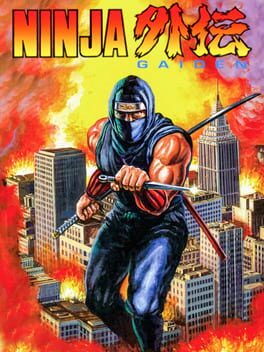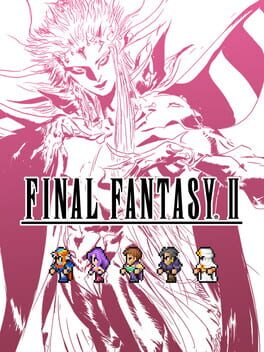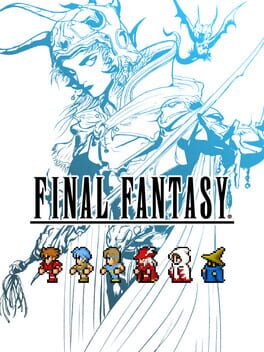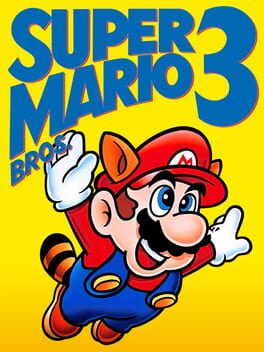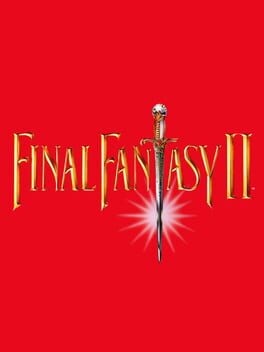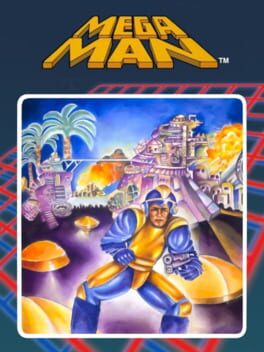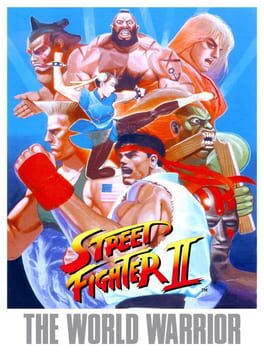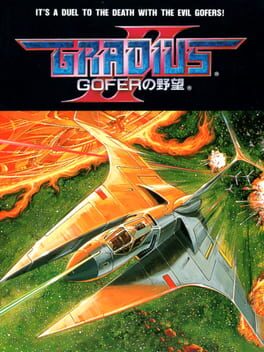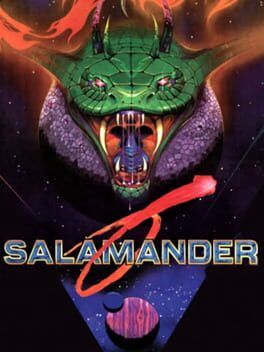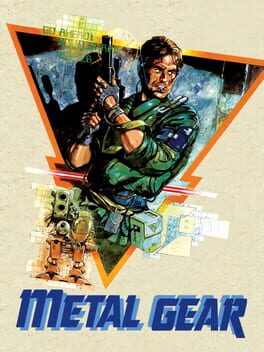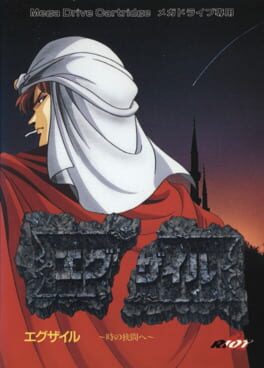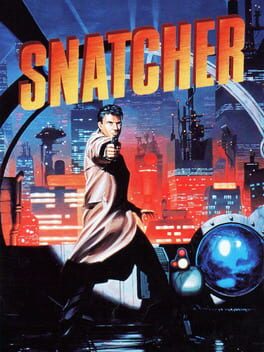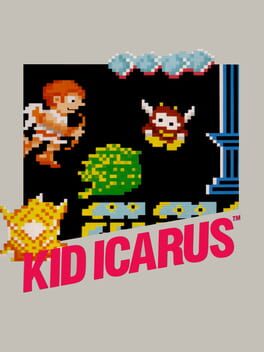TheMaxine
1988
Just so we're all on the same page, I respect Ninja Gaiden and think everybody should play it at least once. The three stars is not a representation of the game itself, it's a representation of how bad I am at it. This is a game that caters to a specific clientele of hardcore NES players who enjoy a relentless challenge, and, well, as it turns out, it's not a game for me.
There are things to appreciate though. The cinematic approach, first and foremost. What you have here aren't just expository text boxes. These are cutscenes, no ifs or buts about it. Combining shots, angles, visuals, and telling a story throughout. These are your rewards for clearing each stage, and they're very ahead of their time. Not that the story itself is much to talk about, but the presentation is unquestionably professional, with a touch of cheesy.
Of particular note, is that the writer, Hideo Yoshizawa, would go on to direct the Klonoa games, where his drive for combining storytelling with gameplay was made all the more clearer. That one was good as hell.
The soundtrack pulls its weight too, and was one of the main reasons I kept going. There's definitely some stuff here that'll stick in your head.
At the end of the day though, I can't do this game without cheats. Every second I play the game is a 50% chance of me getting hit, and to take that away through a rewind-heavy perfect run obviously dulls the experience through my own fault. But, I'll always be happy to watch other people kick ass at it in speedruns.
There are things to appreciate though. The cinematic approach, first and foremost. What you have here aren't just expository text boxes. These are cutscenes, no ifs or buts about it. Combining shots, angles, visuals, and telling a story throughout. These are your rewards for clearing each stage, and they're very ahead of their time. Not that the story itself is much to talk about, but the presentation is unquestionably professional, with a touch of cheesy.
Of particular note, is that the writer, Hideo Yoshizawa, would go on to direct the Klonoa games, where his drive for combining storytelling with gameplay was made all the more clearer. That one was good as hell.
The soundtrack pulls its weight too, and was one of the main reasons I kept going. There's definitely some stuff here that'll stick in your head.
At the end of the day though, I can't do this game without cheats. Every second I play the game is a 50% chance of me getting hit, and to take that away through a rewind-heavy perfect run obviously dulls the experience through my own fault. But, I'll always be happy to watch other people kick ass at it in speedruns.
2021
I was hoping the remaster would fix some of FF2's more egregious issues, and to an extent it does, but not enough. Having to individually grind your stats based on the actions you take is one thing, but grinding out each and every individual spell was a piss-taking exercise in patience.
It didn't help that all that grinding later, and the spells were still next to worthless. According to Reddit though, this was because of the equipment I was wearing, which utilizes an invisible "weight" system that nerfs your magic. The game itself... does not ever hint of this (update: since latest patch, now it does. might update the review at some point in the future), and by that point, I've already beaten it by cheesing my way through it with regular attacks.
All this to say, I'm baffled to have played an RPG in which spamming your regular attack felt more encouraged than making use of any of your spells. You can imagine how dull that makes it to play. Little to no strategy required.
I do not know if there is a definitive way to play Final Fantasy II yet, that's something I'll be finding out as I tackle the other versions. As of this review however, I can't say this one holds up.
It didn't help that all that grinding later, and the spells were still next to worthless. According to Reddit though, this was because of the equipment I was wearing, which utilizes an invisible "weight" system that nerfs your magic. The game itself... does not ever hint of this (update: since latest patch, now it does. might update the review at some point in the future), and by that point, I've already beaten it by cheesing my way through it with regular attacks.
All this to say, I'm baffled to have played an RPG in which spamming your regular attack felt more encouraged than making use of any of your spells. You can imagine how dull that makes it to play. Little to no strategy required.
I do not know if there is a definitive way to play Final Fantasy II yet, that's something I'll be finding out as I tackle the other versions. As of this review however, I can't say this one holds up.
2021
A pretty good way to get into the Final Fantasy series, and perhaps to even get into RPG's in general if you're looking to start with something simple.
The remaster brings many QoL changes that remove the tedium of the NES original, including a modern inventory system, a way to auto-battle, fast forward things, and a map to make use of. There's also decent replay value through picking which classes you want to start the game off with. The music kicks ass, also, they did an incredible job remixing it. The overall difficulty is pretty easy, up until you reach the final boss. That one's gonna test you proper.
You're not gonna get an amazing story out of this due to its roots, but if you enjoy the feeling of leveling up, getting stronger, and looking forward to what the next area has to offer, this game more than scratches that itch.
The only major complaint about the remaster is the use of font. There are ways to change it into something more 8-bit looking, which I would recommend looking up.
The remaster brings many QoL changes that remove the tedium of the NES original, including a modern inventory system, a way to auto-battle, fast forward things, and a map to make use of. There's also decent replay value through picking which classes you want to start the game off with. The music kicks ass, also, they did an incredible job remixing it. The overall difficulty is pretty easy, up until you reach the final boss. That one's gonna test you proper.
You're not gonna get an amazing story out of this due to its roots, but if you enjoy the feeling of leveling up, getting stronger, and looking forward to what the next area has to offer, this game more than scratches that itch.
The only major complaint about the remaster is the use of font. There are ways to change it into something more 8-bit looking, which I would recommend looking up.
1988
It's about as close to a perfect platformer as it gets. Absolutely packed to the brim with content, with physics and controls that are improved to the nth degree. In my opinion, there is no better and more accessible NES game to play than this one.
What also helps is that compared to previous Mario games, Mario 3 showers you with 1-ups through various optional minigames, and a chance to score some per every 3 stages cleared. You'll be racking them up in no time, and will be far less likely to see a game over screen. Though still a moderately challenging game (especially in the final world), Mario 3 is not concerned about punishing you, it's about incentivizing you to push forward. The 1-ups are part of that, but the short lengths of every stage also encourages you to keep trying.
Also, the world map is great, and just proves that every game ever needs a board-game style map. Not only it'll stick in your mind come 15 years later, but it's just a good indicator of progress. I want a Silent Hill game where a tiny depressed man jaunts across a miniature ghost town to the next blinking square point. This is my desire, and I hope you respect it.
I do have some problems with the raccoon powerup, primarily the way it alters Mario's handling. It feels like more weight is added on top of the controls, which makes running around the levels a bit less comfortable. Perhaps that's just the intentional trade-off, but it does cause me to edge more towards fire flowers. That personal gripe aside, I'll come back to Mario 3 every year, like it's a christmas tradition or something. Love this thing.
What also helps is that compared to previous Mario games, Mario 3 showers you with 1-ups through various optional minigames, and a chance to score some per every 3 stages cleared. You'll be racking them up in no time, and will be far less likely to see a game over screen. Though still a moderately challenging game (especially in the final world), Mario 3 is not concerned about punishing you, it's about incentivizing you to push forward. The 1-ups are part of that, but the short lengths of every stage also encourages you to keep trying.
Also, the world map is great, and just proves that every game ever needs a board-game style map. Not only it'll stick in your mind come 15 years later, but it's just a good indicator of progress. I want a Silent Hill game where a tiny depressed man jaunts across a miniature ghost town to the next blinking square point. This is my desire, and I hope you respect it.
I do have some problems with the raccoon powerup, primarily the way it alters Mario's handling. It feels like more weight is added on top of the controls, which makes running around the levels a bit less comfortable. Perhaps that's just the intentional trade-off, but it does cause me to edge more towards fire flowers. That personal gripe aside, I'll come back to Mario 3 every year, like it's a christmas tradition or something. Love this thing.
The problem with having some of my first Metroidvania experiences be from the 2000's onward, is that I've been spoiled rotten on the amount of QoL that Wonder Boy III paved the way for. Although I respect anybody who enjoys this game (more power to you!), I, uh... didn't click.
Coming back to this one, I've struggled to remain engaged. The premise is interesting enough, being able to acquire items and unique animal transformations, each of which packs their own ability and allows you to explore further areas. The problem for me, was that the areas weren't interesting enough to be explored. You know those old Arcadey games where you've got a sword, and you're just holding right for the most part while swinging your weapon to one-hit kill oncoming threats? Like hack 'n slash games in which attacking takes significantly more precedence over platforming. That's what Wonder Boy's design feels like, these long horizontal flat stretches broken up by dungeons with even more horizontal stretches of enemy onslaughts.
There are some things the game does to try and spice things up, such as underwater areas, and wall climbing, but these things aren't enough to break up what you're gonna be doing for the whole game, which is run and slash. And with the game's basic combat feel, plus the game running at a lower frame rate (it seemed like 30) compared to most games of that time, the gameplay does not feel smooth and satisfying enough to justify trekking through it, especially in the instances where you might get stuck and will have to redo the areas you've already explored just to confirm if you didn't miss something.
I also wasn't a fan of the animal transformations being relegated to specific rooms, and would've rather preferred the option to transform into any animal with the press of a button, or via my menu whenever I wanted. A map could've been great too. As it currently is, I was not able to remember the specific locations of every animal transformation room, and sometimes I wound up in a room that required an animal that I wasn't currently transformed into. So, time to figure out where's the nearest transformation room, I guess! It was inconvenient and time-wasting.
In the future, I'm still interested in checking out the remake of Dragon's Trap, as I loved the art I saw in it, and am hopeful that it'll iron out some of my gripes about the lack of a map and the overly simplistic combat feel. Without those things, Dragon's Trap is a game full of neat ideas with a dull execution, and I wish I could've enjoyed this one a lot more than I did.
Coming back to this one, I've struggled to remain engaged. The premise is interesting enough, being able to acquire items and unique animal transformations, each of which packs their own ability and allows you to explore further areas. The problem for me, was that the areas weren't interesting enough to be explored. You know those old Arcadey games where you've got a sword, and you're just holding right for the most part while swinging your weapon to one-hit kill oncoming threats? Like hack 'n slash games in which attacking takes significantly more precedence over platforming. That's what Wonder Boy's design feels like, these long horizontal flat stretches broken up by dungeons with even more horizontal stretches of enemy onslaughts.
There are some things the game does to try and spice things up, such as underwater areas, and wall climbing, but these things aren't enough to break up what you're gonna be doing for the whole game, which is run and slash. And with the game's basic combat feel, plus the game running at a lower frame rate (it seemed like 30) compared to most games of that time, the gameplay does not feel smooth and satisfying enough to justify trekking through it, especially in the instances where you might get stuck and will have to redo the areas you've already explored just to confirm if you didn't miss something.
I also wasn't a fan of the animal transformations being relegated to specific rooms, and would've rather preferred the option to transform into any animal with the press of a button, or via my menu whenever I wanted. A map could've been great too. As it currently is, I was not able to remember the specific locations of every animal transformation room, and sometimes I wound up in a room that required an animal that I wasn't currently transformed into. So, time to figure out where's the nearest transformation room, I guess! It was inconvenient and time-wasting.
In the future, I'm still interested in checking out the remake of Dragon's Trap, as I loved the art I saw in it, and am hopeful that it'll iron out some of my gripes about the lack of a map and the overly simplistic combat feel. Without those things, Dragon's Trap is a game full of neat ideas with a dull execution, and I wish I could've enjoyed this one a lot more than I did.
1991
I've already experienced Final Fantasy 4 through the Pixel Remaster edition, but I wanted to go back to the SNES original for the sake of the aesthetic, seeing as the remasters all look pretty identical to each other, and just to see how does the original stack up. Expect the review to be described from this kind of perspective.
Obviously, it's the first version of the game, so you're not gonna get any of the remaster's conveniences. Battles are slower, overall menu navigation is slower, there's no run button... one of the more surprising things missing is the ATB bar. Like, the ATB system is in this game, there's just no visual indicators for when will your character be able to have their turn.
The localization is butchered to hell and back, but from my viewpoint, it's a bonus that makes the game's story more entertaining. And you're gonna want that, because the story by itself has pretty barebones characterization, and a comedically frequent amount of death scenes to increase the drama. I'll take all the narm I can get.
So far I've been a bit on the negative side though, is this still a good version of the game to play? Yeah, sure, as long as you're the patient sort. A fast forward button helps too, but patience is more important here. It is an RPG after all. The difficulty is perfectly managable, and considerably better balanced than any of the NES Final Fantasies. I think the only part I didn't like was the final dungeon, which smothered you with enemies that took forever to kill, and made for an incredibly long and exhausting dungeon. You might wanna consider splitting it into two sessions instead of trying to knock out all of it at once. I remember this dungeon being a bit tough in the remaster, but not to this extent.
I think your enjoyment of this version also verges on just how much you care about getting the "true" version, which, well, this one's not even it, because they nerfed Final Fantasy 4's difficulty when they brought it to the west and renamed it to Final Fantasy 2. So, you'd likely have to dabble in some rom hackery to get the real original version of Final Fantasy 4, but I don't have it in me to play a harder RPG than this right now, I'm a coward and like these things to be on the lax side.
Otherwise, if you just want the most QoL-like version of FF4, the Pixel Remaster will do you fine. It's faster, and surprisingly faithful now that I can compare the two. Though, I haven't played any of the other versions of FF4, so it's possible there might be even better versions of the game. Feel free to recommend them in the replies if you have any. Either way, I'll be getting to all of them in the future.
Obviously, it's the first version of the game, so you're not gonna get any of the remaster's conveniences. Battles are slower, overall menu navigation is slower, there's no run button... one of the more surprising things missing is the ATB bar. Like, the ATB system is in this game, there's just no visual indicators for when will your character be able to have their turn.
The localization is butchered to hell and back, but from my viewpoint, it's a bonus that makes the game's story more entertaining. And you're gonna want that, because the story by itself has pretty barebones characterization, and a comedically frequent amount of death scenes to increase the drama. I'll take all the narm I can get.
So far I've been a bit on the negative side though, is this still a good version of the game to play? Yeah, sure, as long as you're the patient sort. A fast forward button helps too, but patience is more important here. It is an RPG after all. The difficulty is perfectly managable, and considerably better balanced than any of the NES Final Fantasies. I think the only part I didn't like was the final dungeon, which smothered you with enemies that took forever to kill, and made for an incredibly long and exhausting dungeon. You might wanna consider splitting it into two sessions instead of trying to knock out all of it at once. I remember this dungeon being a bit tough in the remaster, but not to this extent.
I think your enjoyment of this version also verges on just how much you care about getting the "true" version, which, well, this one's not even it, because they nerfed Final Fantasy 4's difficulty when they brought it to the west and renamed it to Final Fantasy 2. So, you'd likely have to dabble in some rom hackery to get the real original version of Final Fantasy 4, but I don't have it in me to play a harder RPG than this right now, I'm a coward and like these things to be on the lax side.
Otherwise, if you just want the most QoL-like version of FF4, the Pixel Remaster will do you fine. It's faster, and surprisingly faithful now that I can compare the two. Though, I haven't played any of the other versions of FF4, so it's possible there might be even better versions of the game. Feel free to recommend them in the replies if you have any. Either way, I'll be getting to all of them in the future.
1987
I wouldn't recommend this being your starter Mega Man, but it's not too bad for the first entry in the series. There's a respectable amount of variety here that you don't see in a lot of NES games, and the gameplay is simple enough to pick up, with there being a consistent strategy to overcome every stage. Learn, and adapt, is the series's motto.
There are however, some bosses here that feel straight up unfair to fight, and rely more on the crapshoot strategy of "kill them before they kill you." FireMan, ElecMan, and one of the bosses from Dr. Wily's stages are the big three that follow that principle. CutMan does too, to some extent. They're too aggressive to be reliably dodged, and this is before the series introduces some of its more useful moves, such as the charge shot, slide, or the ability to recover health mid-battle via carryable items. Oh, and fuck Yellow Devil too. He's not hard, just long. Too long.
Every boss has a weakness to a specific weapon however, and if you utilize that weakness, the game shouldn't be as hard. To that end, I strongly recommend using a weakness guide, to figure out in what order should you be tackling the levels. My friend felt like this'd be cheating, but they had a lot more fun with it compared to choosing levels at random and realizing that the boss at the end is way too tough. In later games, you won't have to rely on guides as heavily if you wish, but for these very early ones, where the bosses are a pisstake, it's better to play safe.
Overall, decent enough fun, with some bullshit bosses.
There are however, some bosses here that feel straight up unfair to fight, and rely more on the crapshoot strategy of "kill them before they kill you." FireMan, ElecMan, and one of the bosses from Dr. Wily's stages are the big three that follow that principle. CutMan does too, to some extent. They're too aggressive to be reliably dodged, and this is before the series introduces some of its more useful moves, such as the charge shot, slide, or the ability to recover health mid-battle via carryable items. Oh, and fuck Yellow Devil too. He's not hard, just long. Too long.
Every boss has a weakness to a specific weapon however, and if you utilize that weakness, the game shouldn't be as hard. To that end, I strongly recommend using a weakness guide, to figure out in what order should you be tackling the levels. My friend felt like this'd be cheating, but they had a lot more fun with it compared to choosing levels at random and realizing that the boss at the end is way too tough. In later games, you won't have to rely on guides as heavily if you wish, but for these very early ones, where the bosses are a pisstake, it's better to play safe.
Overall, decent enough fun, with some bullshit bosses.
I have very little experience with fighting games, aside from some Tekken 3 when I was younger. So, I chose to create a backlog of various popular fighting games, and the oldest version of Street Fighter 2 is first on my list, with the goal to learn the moves of every character, try them out in the campaign, and have a couple multiplayer matches with my friend. Note, that I used the PS1 version of the World Warrior version, from the "Street Fighter Collection 2." But, as far as my research confirms, it should be identical to the arcade original.
I'll say this much, the game is a lot more fun with a friend than a CPU. Which makes me wonder, how many fighting games are like that? Obviously, fighting a CPU is never gonna be as fun as a friend, but... playing this game, you quickly realize that the CPU already knows what you're gonna do from the moment you press the button. But are there fighting games in which the CPU feels more... "real" than that? Where they share a reaction time, a certain skillset, a certain degree of pattern to them like how a human would? I suppose that's something I'll have to find out as I keep going through the backlog, but for this, the CPU was very difficult to learn and predict, and that makes playing it solo kinda annoying. At the very least, you have infinite continues to retry the fights as much as you like.
Debates over the CPU's fairness aside, as a newcomer to fighting games, I can feel that there is extreme value in playing this one. I'm sure that the later editions of Street Fighter 2 will be much more fun to play, and of course that later fighting games will be more intrinsically complex in their movesets. But, to play a game like this, where each character has about 5 special moves, 2-3 of which tend to just be grabs, makes learning the game quick and easy. To me, it's the perfect introduction to the fighting genre. It was a very good idea to start with a simple game, and I'm looking forward to seeing the complexity rise over the next fighting games I play, as the genre and this series continues to evolve all the way to Street Fighter 6.
To put it simply: A perfect game for newcomers. To those experienced in the fighting game genre however, I doubt you'll get much out of this.
I'll say this much, the game is a lot more fun with a friend than a CPU. Which makes me wonder, how many fighting games are like that? Obviously, fighting a CPU is never gonna be as fun as a friend, but... playing this game, you quickly realize that the CPU already knows what you're gonna do from the moment you press the button. But are there fighting games in which the CPU feels more... "real" than that? Where they share a reaction time, a certain skillset, a certain degree of pattern to them like how a human would? I suppose that's something I'll have to find out as I keep going through the backlog, but for this, the CPU was very difficult to learn and predict, and that makes playing it solo kinda annoying. At the very least, you have infinite continues to retry the fights as much as you like.
Debates over the CPU's fairness aside, as a newcomer to fighting games, I can feel that there is extreme value in playing this one. I'm sure that the later editions of Street Fighter 2 will be much more fun to play, and of course that later fighting games will be more intrinsically complex in their movesets. But, to play a game like this, where each character has about 5 special moves, 2-3 of which tend to just be grabs, makes learning the game quick and easy. To me, it's the perfect introduction to the fighting genre. It was a very good idea to start with a simple game, and I'm looking forward to seeing the complexity rise over the next fighting games I play, as the genre and this series continues to evolve all the way to Street Fighter 6.
To put it simply: A perfect game for newcomers. To those experienced in the fighting game genre however, I doubt you'll get much out of this.
If you liked the first Gradius, good news, it's more of that. It's just as punishing, and it's just as satisfying to get that fully upgraded ship. I also really liked the music in this one, that song at the beginning of each stage really inspired me to keep going. Overall, a nice little shoot'em up, though not one that I could beat without save states.
1986
It's difficult for me to explain why, but somehow I've found The First Encounter to be a better game. Not that Second Encounter was all that bad, the greater variety of locales was appreciated, and I still got a kick out of slaughtering hordes of enemies.
I think my main gripe was that they went a teensy bit more overboard on the dizzyingly long linear corridors with 200 enemies charging directly at you. I mean, a good chunk of the final level was just that, but there were other examples of it. I feel like if they reigned that in and found more interesting level setpieces to fight enemies in... like that rotating tube straight out of Mario Galaxy! That was cool! But... the room where you and the enemies are constantly bouncing was far from cool. That one just made me go "who the hell thought this room was a good idea"
I think more than ever, Second Encounter made me go "man, this would be a really fun game if I had some buddies to co-op this with." As it stands, I played it alone, and the odds were overwhelming, sometimes in a cool way, and sometimes in some quite cheap and lazily designed ways. But man, to imagine blasting all these fuckers with 3 or more people, as we team up, and split up as one team handles the left side of a level, while the other handles the right... my imagination was flaring up at the idea of it, and I do hope I might be able to find a way to co-op this game sometime in the future.
Also, this comic book-ass story setup... are we ever actually going to kill Mental, or is this mysterious figure always gonna be just one step ahead of us? Come on! If I don't get to kill him in Serious Sam 2, things will get very Serious...
Anyway, did you like First Encounter? Yeah, sure, play this. Were you hoping this game would fix problems from its predecessor, like the overly spacious design? Tough luck, it doesn't. It's more of the first game, and then some.
I think my main gripe was that they went a teensy bit more overboard on the dizzyingly long linear corridors with 200 enemies charging directly at you. I mean, a good chunk of the final level was just that, but there were other examples of it. I feel like if they reigned that in and found more interesting level setpieces to fight enemies in... like that rotating tube straight out of Mario Galaxy! That was cool! But... the room where you and the enemies are constantly bouncing was far from cool. That one just made me go "who the hell thought this room was a good idea"
I think more than ever, Second Encounter made me go "man, this would be a really fun game if I had some buddies to co-op this with." As it stands, I played it alone, and the odds were overwhelming, sometimes in a cool way, and sometimes in some quite cheap and lazily designed ways. But man, to imagine blasting all these fuckers with 3 or more people, as we team up, and split up as one team handles the left side of a level, while the other handles the right... my imagination was flaring up at the idea of it, and I do hope I might be able to find a way to co-op this game sometime in the future.
Also, this comic book-ass story setup... are we ever actually going to kill Mental, or is this mysterious figure always gonna be just one step ahead of us? Come on! If I don't get to kill him in Serious Sam 2, things will get very Serious...
Anyway, did you like First Encounter? Yeah, sure, play this. Were you hoping this game would fix problems from its predecessor, like the overly spacious design? Tough luck, it doesn't. It's more of the first game, and then some.
1987
It's alright for its time, but not much to speak up about these days. The story that is here was easily summarized in 3 minutes within Metal Gear Solid's recap, and isn't really worth experiencing on your own. Imagine the keycard and item-hunting of Metal Gear Solid 1, but with no story in-between to break up the pace. There's a neat little twist towards the end of the game, but unfortunately, it's just not enough to keep this from being average at best, mind-numbing at worst.
1991
Used a romhack that restores the difficulty back to the original Japanese release.
Contrary to my initial expectations, Exile is barely an RPG. It's a basic 2D "hold right and kill enemies with sword" gameplay loop, with lite RPG elements such as experience points, and top-down towns in which you buy equipment for the road ahead.
What's baffling about it is that the way it starts, will completely lead you to believe that you're in for a party-based RPG game. You start off in a town, and your main goal is to gather three party members for your journey. The game makes a point of telling you one of these party members has brute strength that could be useful. "Oh, like a tank-type character! Sure!" One of them looks like a mage, probably gonna cast some spells. It seems a bit odd that you can only buy equipment for your main character and no one else, but I figured "hey, less management sounds good."
So, your expectations are set this way, only to be swept under you like a rug. The moment you get to your first dungeon, all your party members get left behind as you fall into a trap. "Alright, fair enough, looks like we're starting off with just one character for now." But then you get to the later dungeons, and your protagonist just tells your party members to stay behind. Well then, why in bloody hell are they here at all? They're useless! And they stay that way for the rest of the game, they journey along with you, but fall back at the first sign of danger, leaving you to do all the work. That one party member's brute strength the game wanted to point out? Never actually gets used. It's like something got unfinished here, like, the game was supposed to be more than what it turned out to be.
So, there's no party members, there's no overworld to traverse, there's no Inns. What's left, is a very streamlined experience - and I don't mind streamlined - but this one's streamlined to a point where everything's moving at an insanely fast rate, with little room to process or develop any potential mechanics. You visit some towns for a bit of story, you visit some dungeons, none of which require anything else from you but to hold a direction and occasionally swing the sword, and by the time 3 hours pass, the game's already over. And I'm sitting there, wondering to myself, "That's it? Where's the other 4 hours?"
That goes for the story too. I feel like something interesting got set up here, and it had the opportunity to deliver a politically intriguing tale between different factions of Exile's seemingly screwed up world, but none of it leaned into things hard enough to matter in the grand scheme of things, certainly not enough for me to remember all the made-up names it introduced in the first 30 minutes of gameplay.
The writing itself switches quality depending on whether it utilizes voice acting or text to convey its story. The voice acting is surprisingly competent for an early 90's game, and delivers some of the best written moments of the entire experience.
Outside of the voiced cutscenes, the writing alternates between mundane and almost childish. I'm aware of Working Design's infamous tendency to rewrite things in their localizations, and it's not so bad here, but you'd still be excused for thinking some of these lines were written by a teenager with no sense of characterization. The moment my hardened assassin protagonist saw a bloodstain and said "GROSS!", was the moment all my immersion in this world evaporated, and I just started poking fun at the little things.
In short, Exile features monotonous gameplay, a disappointingly underdeveloped world, and a story that shifts between interesting and laughable in its execution. A real shame, this one. I can't say the gameplay can be saved here, but I really wonder just how much of the story could've been saved if more care was placed into it. After all, when this game kills off two major characters off-screen and tells the protagonist to just get over it, I doubt much care was placed at all. Perhaps I'll find out the differences one day, but knowing the obscurity of this title, it might be a long time.
Contrary to my initial expectations, Exile is barely an RPG. It's a basic 2D "hold right and kill enemies with sword" gameplay loop, with lite RPG elements such as experience points, and top-down towns in which you buy equipment for the road ahead.
What's baffling about it is that the way it starts, will completely lead you to believe that you're in for a party-based RPG game. You start off in a town, and your main goal is to gather three party members for your journey. The game makes a point of telling you one of these party members has brute strength that could be useful. "Oh, like a tank-type character! Sure!" One of them looks like a mage, probably gonna cast some spells. It seems a bit odd that you can only buy equipment for your main character and no one else, but I figured "hey, less management sounds good."
So, your expectations are set this way, only to be swept under you like a rug. The moment you get to your first dungeon, all your party members get left behind as you fall into a trap. "Alright, fair enough, looks like we're starting off with just one character for now." But then you get to the later dungeons, and your protagonist just tells your party members to stay behind. Well then, why in bloody hell are they here at all? They're useless! And they stay that way for the rest of the game, they journey along with you, but fall back at the first sign of danger, leaving you to do all the work. That one party member's brute strength the game wanted to point out? Never actually gets used. It's like something got unfinished here, like, the game was supposed to be more than what it turned out to be.
So, there's no party members, there's no overworld to traverse, there's no Inns. What's left, is a very streamlined experience - and I don't mind streamlined - but this one's streamlined to a point where everything's moving at an insanely fast rate, with little room to process or develop any potential mechanics. You visit some towns for a bit of story, you visit some dungeons, none of which require anything else from you but to hold a direction and occasionally swing the sword, and by the time 3 hours pass, the game's already over. And I'm sitting there, wondering to myself, "That's it? Where's the other 4 hours?"
That goes for the story too. I feel like something interesting got set up here, and it had the opportunity to deliver a politically intriguing tale between different factions of Exile's seemingly screwed up world, but none of it leaned into things hard enough to matter in the grand scheme of things, certainly not enough for me to remember all the made-up names it introduced in the first 30 minutes of gameplay.
The writing itself switches quality depending on whether it utilizes voice acting or text to convey its story. The voice acting is surprisingly competent for an early 90's game, and delivers some of the best written moments of the entire experience.
Outside of the voiced cutscenes, the writing alternates between mundane and almost childish. I'm aware of Working Design's infamous tendency to rewrite things in their localizations, and it's not so bad here, but you'd still be excused for thinking some of these lines were written by a teenager with no sense of characterization. The moment my hardened assassin protagonist saw a bloodstain and said "GROSS!", was the moment all my immersion in this world evaporated, and I just started poking fun at the little things.
In short, Exile features monotonous gameplay, a disappointingly underdeveloped world, and a story that shifts between interesting and laughable in its execution. A real shame, this one. I can't say the gameplay can be saved here, but I really wonder just how much of the story could've been saved if more care was placed into it. After all, when this game kills off two major characters off-screen and tells the protagonist to just get over it, I doubt much care was placed at all. Perhaps I'll find out the differences one day, but knowing the obscurity of this title, it might be a long time.
1992
Snatcher wears its Blade Runner influences for everybody to see. As blatant as it is though, the game does feel like it's doing its own thing. It's less "we're ripping off blade runner" and more "this is what we would do if we had the blade runner franchise." It feels more earnest in that way.
In terms of the overall storytelling quality though, I feel like Snatcher is more entertaining as a series of individual moments than it is as a cohesive overarching narrative, because I've played this game at least three times now, and I still can't remember what the story is about. I do however, remember the characters, the little robot, the actiony sequences, the setpieces... The computer device in your HQ had a whole bunch of shit that had that sort of trademark Kojima "jesus christ he put way too much thought into this" thing, and it made for some entertaining worldbuilding. All of these things pull enough weight to keep you going to see what'll happen next, so as a story, I guess I'd rate it "good enough!"
Music's pretty good too. The opening theme is a particular highlight, by far the best song in the game. The rest of the songs tend to stick to 16-bit Genesis kinda sounds, though I wish there was more of them across the game. The visuals seen across are some of the best spritework you'll find of this era. Richly detailed cities lit in the night, busy crowds during Christmas season, and decrepit abandoned relics of the past, all of which emitted some feelings of nostalgia for places I've been to, similar to these.
As a game though, it's not fun. You have your traditional adventure game interface of that time, where you can look and examine various things, but Snatcher gets really annoying about it by providing you with random arbitrary requirements regarding what counts as "progress." Get ready to examine the same objects 5 or 6 different times constantly throughout the game, until it finally decides that you were thorough enough to unlock the next area. It'll cause you to get constantly stuck, and makes for some pretty padded pacing.
Besides that, you have a couple basic gallery shooter segments for when you have to engage in combat, but they're nothing to write home about. It's just something to do, but the lack of depth makes it arguably pointless.
Going back to the story, there is one major point of criticism I have against it. Your MC, Gillian. Gillian's a detective. I really like detective characters. Cool guys that get shit done. And Gillian does do some cool shit over time. It makes me really want to like him too. If it weren't for the fact that he's a major fuckin' horndog.
This is a complicated thing to discuss, as there are right ways to write a comically horny character, and there are very wrong ways that make things actively creepier than funnier. Gillian is a creepy horny. I think that's in part because he's the only one in the game that behaves that way, so he sticks out. It doesn't matter who it is, could be the 18-year old girl grieving her father's passing, for all he cares. As long as they're even remotely feminine in appearance, Gillian starts going awooga all over'em.
The contrast becomes explicitly obvious when you compare the way the game treats male characters versus how it treats girls as things to undress with your eyes. Not to mention, how it uses the existence of a trans person all for the sake of a shitty "Oh NO, I've been flirting with a GUY?!" joke. The treatment of sexuality here is off-puttingly one-sided, entirely based around making women uncomfortable by telling them to be submissive for the guys, and it turns the otherwise cool detective character into an incredibly depressing, and rarely endearing loser.
One may argue, that these flirting options are optional, and, as a result, are a roleplaying element. Absolutely not. Gillian will do stuff like this with or without your heads-up. There's one point in the game where you're searching the streets for an informant, and Gillian just happens to stumble upon some random girl on the street and starts acting up all on his own. It's not a roleplaying element, it's just part of his personality.
Not like this is a roleplaying game anyway, you don't make choices that affect the course of the game's story, all you're in charge of is your womanizer levels. I know I've been prattling on about this for like half the review, it's just unsettling that within a game that has so many neat moments, also lies this pointless bullshit. I mean, it could've had the potential to be an ironic Johnny Bravo, but it instead wound up being that creepy drunken guy in the bar that follows you down the alleyway. And it makes the game kinda embarrassing to recommend to anyone.
And I haven't even gotten to reviewing Policenauts yet, 'cause jesus christ.
In terms of the overall storytelling quality though, I feel like Snatcher is more entertaining as a series of individual moments than it is as a cohesive overarching narrative, because I've played this game at least three times now, and I still can't remember what the story is about. I do however, remember the characters, the little robot, the actiony sequences, the setpieces... The computer device in your HQ had a whole bunch of shit that had that sort of trademark Kojima "jesus christ he put way too much thought into this" thing, and it made for some entertaining worldbuilding. All of these things pull enough weight to keep you going to see what'll happen next, so as a story, I guess I'd rate it "good enough!"
Music's pretty good too. The opening theme is a particular highlight, by far the best song in the game. The rest of the songs tend to stick to 16-bit Genesis kinda sounds, though I wish there was more of them across the game. The visuals seen across are some of the best spritework you'll find of this era. Richly detailed cities lit in the night, busy crowds during Christmas season, and decrepit abandoned relics of the past, all of which emitted some feelings of nostalgia for places I've been to, similar to these.
As a game though, it's not fun. You have your traditional adventure game interface of that time, where you can look and examine various things, but Snatcher gets really annoying about it by providing you with random arbitrary requirements regarding what counts as "progress." Get ready to examine the same objects 5 or 6 different times constantly throughout the game, until it finally decides that you were thorough enough to unlock the next area. It'll cause you to get constantly stuck, and makes for some pretty padded pacing.
Besides that, you have a couple basic gallery shooter segments for when you have to engage in combat, but they're nothing to write home about. It's just something to do, but the lack of depth makes it arguably pointless.
Going back to the story, there is one major point of criticism I have against it. Your MC, Gillian. Gillian's a detective. I really like detective characters. Cool guys that get shit done. And Gillian does do some cool shit over time. It makes me really want to like him too. If it weren't for the fact that he's a major fuckin' horndog.
This is a complicated thing to discuss, as there are right ways to write a comically horny character, and there are very wrong ways that make things actively creepier than funnier. Gillian is a creepy horny. I think that's in part because he's the only one in the game that behaves that way, so he sticks out. It doesn't matter who it is, could be the 18-year old girl grieving her father's passing, for all he cares. As long as they're even remotely feminine in appearance, Gillian starts going awooga all over'em.
The contrast becomes explicitly obvious when you compare the way the game treats male characters versus how it treats girls as things to undress with your eyes. Not to mention, how it uses the existence of a trans person all for the sake of a shitty "Oh NO, I've been flirting with a GUY?!" joke. The treatment of sexuality here is off-puttingly one-sided, entirely based around making women uncomfortable by telling them to be submissive for the guys, and it turns the otherwise cool detective character into an incredibly depressing, and rarely endearing loser.
One may argue, that these flirting options are optional, and, as a result, are a roleplaying element. Absolutely not. Gillian will do stuff like this with or without your heads-up. There's one point in the game where you're searching the streets for an informant, and Gillian just happens to stumble upon some random girl on the street and starts acting up all on his own. It's not a roleplaying element, it's just part of his personality.
Not like this is a roleplaying game anyway, you don't make choices that affect the course of the game's story, all you're in charge of is your womanizer levels. I know I've been prattling on about this for like half the review, it's just unsettling that within a game that has so many neat moments, also lies this pointless bullshit. I mean, it could've had the potential to be an ironic Johnny Bravo, but it instead wound up being that creepy drunken guy in the bar that follows you down the alleyway. And it makes the game kinda embarrassing to recommend to anyone.
And I haven't even gotten to reviewing Policenauts yet, 'cause jesus christ.
1986
Listen, I'll try to make this review shorter than this game's levels. The summary of the review is... cut the levels by half, and this could've been an infinitely better game.
As much as the upgrade systems were a little difficult to grasp (that's on me for not reading the manual...), I did enjoy the feeling of scaling my way up the vertical stages, and strategically taking down the enemies in my way. The dungeon-like levels and horizontal ones weren't too bad either.
My willingness to replay this game again however, is ruined by the exhausting length of each stage, its layout copy-pasted several times to pad things out. If they wanted Kid Icarus to feel like a grand adventure through how big it is, that's fine, but you're gonna have to do a lot more than this. As it stands, there's too much here for too little gain.
As much as the upgrade systems were a little difficult to grasp (that's on me for not reading the manual...), I did enjoy the feeling of scaling my way up the vertical stages, and strategically taking down the enemies in my way. The dungeon-like levels and horizontal ones weren't too bad either.
My willingness to replay this game again however, is ruined by the exhausting length of each stage, its layout copy-pasted several times to pad things out. If they wanted Kid Icarus to feel like a grand adventure through how big it is, that's fine, but you're gonna have to do a lot more than this. As it stands, there's too much here for too little gain.
